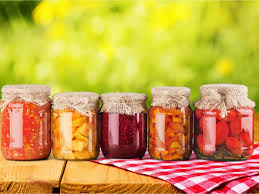
Breaking News
 Are You Starting To Notice A Pattern Yet?
Are You Starting To Notice A Pattern Yet?
 Sacré bleu! Macron blames renewables for Spain's blackouts, France drops renewables targets...
Sacré bleu! Macron blames renewables for Spain's blackouts, France drops renewables targets...
 We Finally Know How Fast The Tesla Semi Will Charge: Very, Very Fast
We Finally Know How Fast The Tesla Semi Will Charge: Very, Very Fast
 Trump admin ousts DOJ antitrust chief Gail Slater amid clashes with White House: Report
Trump admin ousts DOJ antitrust chief Gail Slater amid clashes with White House: Report
Top Tech News
 Drone-launching underwater drone hitches a ride on ship and sub hulls
Drone-launching underwater drone hitches a ride on ship and sub hulls
 Humanoid Robots Get "Brains" As Dual-Use Fears Mount
Humanoid Robots Get "Brains" As Dual-Use Fears Mount
 SpaceX Authorized to Increase High Speed Internet Download Speeds 5X Through 2026
SpaceX Authorized to Increase High Speed Internet Download Speeds 5X Through 2026
 Space AI is the Key to the Technological Singularity
Space AI is the Key to the Technological Singularity
 Velocitor X-1 eVTOL could be beating the traffic in just a year
Velocitor X-1 eVTOL could be beating the traffic in just a year
 Starlink smasher? China claims world's best high-powered microwave weapon
Starlink smasher? China claims world's best high-powered microwave weapon
 Wood scraps turn 'useless' desert sand into concrete
Wood scraps turn 'useless' desert sand into concrete
 Let's Do a Detailed Review of Zorin -- Is This Good for Ex-Windows Users?
Let's Do a Detailed Review of Zorin -- Is This Good for Ex-Windows Users?
 The World's First Sodium-Ion Battery EV Is A Winter Range Monster
The World's First Sodium-Ion Battery EV Is A Winter Range Monster
 China's CATL 5C Battery Breakthrough will Make Most Combustion Engine Vehicles OBSOLETE
China's CATL 5C Battery Breakthrough will Make Most Combustion Engine Vehicles OBSOLETE
Canning myths debunked: Amish methods for canning foods are good, while corporate...

Ever since World War II, American factories have been canning foods in factories in order to preserve the food for long periods of time, but there are serious tradeoffs for those processes, including adding preservatives and chemicals that leach into the food and cause long-term health detriment for consumers.
The dangers of canned foods include exposure to bisphenol A (BPA), a chemical in can linings that can leach into food — especially acidic items like tomatoes — posing risks like hormonal disruption. Additionally, canned foods often contain high sodium levels, contributing to hypertension, while processing may degrade nutrients. Concerns also exist about potential toxicity from aluminum or tin cans, with children, pregnant women, and those with health conditions being particularly vulnerable. Opting for fresh or frozen alternatives is recommended to minimize these risks.
With all that in mind, there are still ways to can foods that are safe and consumer friendly, meaning they don't cause all this health detriment, and the Amish have been doing it for decades.
Amish Canning Wisdom Debunks Modern Myths, Offers Timeless Food Preservation Tips
In an era of processed foods and reliance on industrial supply chains, the Amish community's time-tested canning methods offer a blueprint for safe, sustainable food preservation. For generations, the Amish have relied on simple, effective techniques to store everything from low-acid vegetables to meats — dispelling modern myths that deter beginners. As interest in self-sufficiency grows amid concerns over food security, their practices provide a vital lesson in balancing tradition with safety.
Debunking the Top 7 Myths
Myth 1: Low-Acid Foods Are Unsafe
Fear of botulism has led many to avoid canning vegetables, meats, and legumes. However, the Amish safely preserve these foods using pressure canning, which reaches temperatures high enough to kill harmful bacteria. "Pressure canning allows jars to reach temperatures above boiling point, effectively destroying harmful bacteria, including Clostridium botulinum spores," the article notes.
Myth 2: Expensive Equipment Is Necessary
While modern canning gadgets abound, the Amish rely on basic tools: sturdy pressure canners, mason jars, and simple utensils. Their approach proves that affordability and effectiveness go hand in hand.
Myth 3: Canning Is Too Complicated
The Amish treat canning as an essential life skill, taught early and practiced routinely. Beginners can start with simple recipes like jams or pickles, emphasizing cleanliness and patience.



